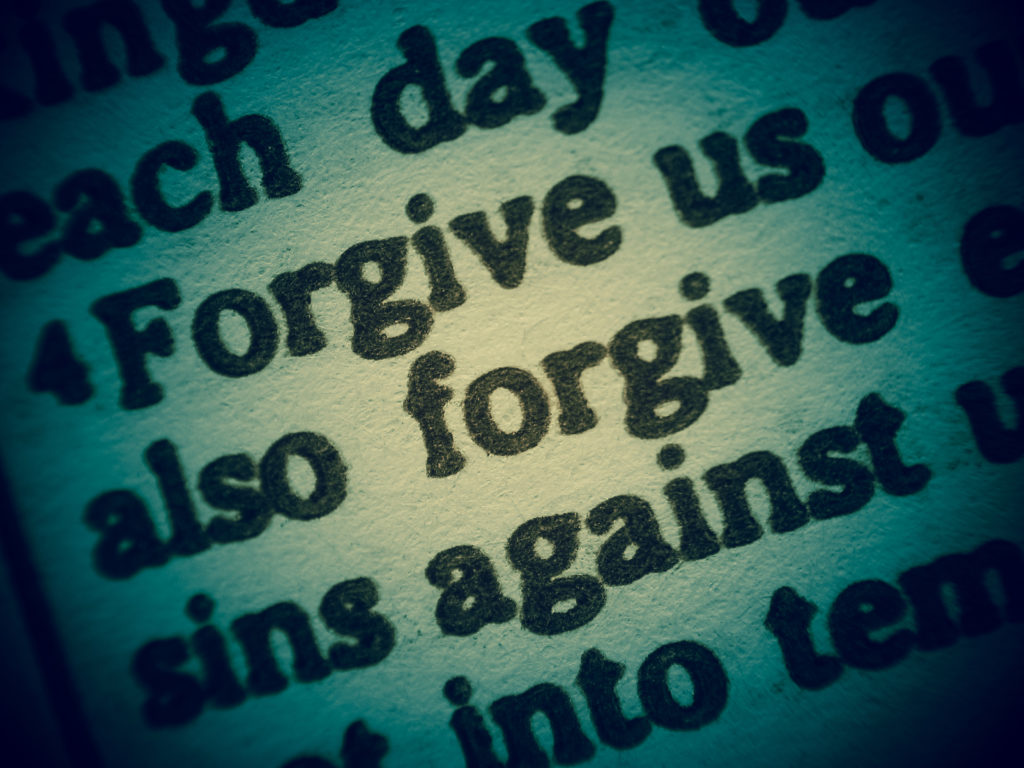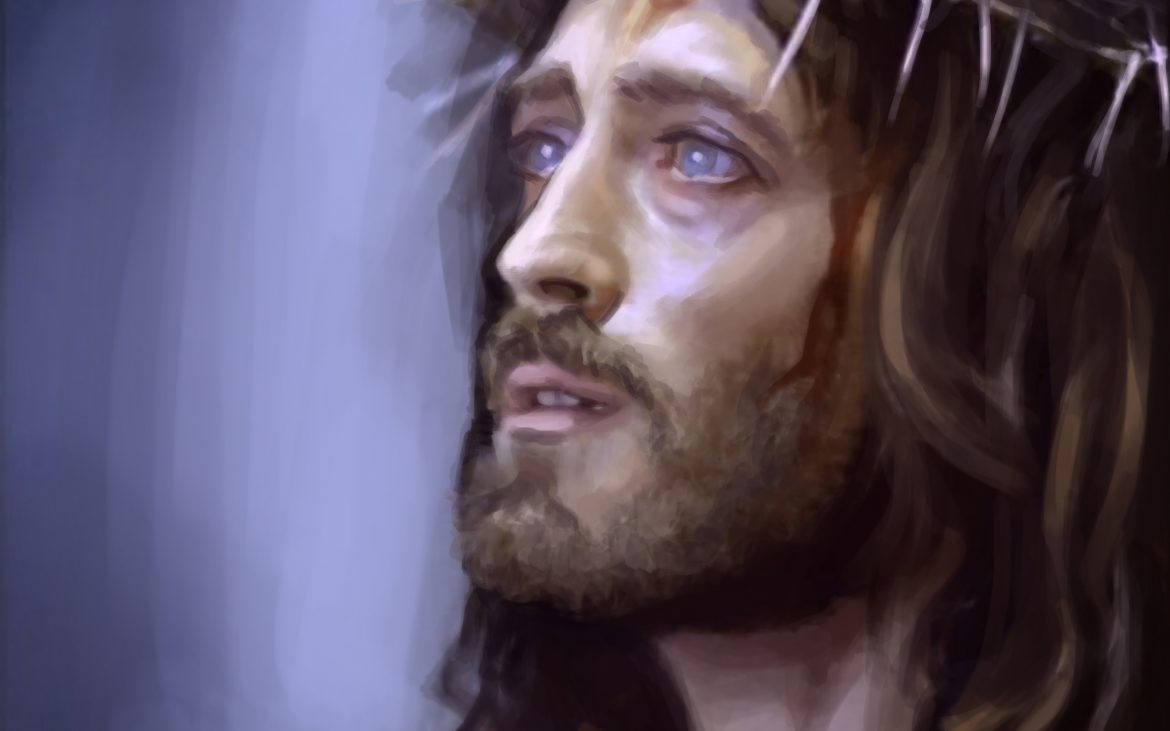Sacrament Essentials : Reconciliation

What’s this Sacrament business all about?
As human beings we communicate through our body; through our words, gestures, facial expressions, and actions. Communication is so foundational to human relationships that they wither when we don’t regularly make the effort to communicate. They also shatter when we use our words or gestures to hurt others.
God also communicates with us through words and gestures and this is especially so in the Sacraments. We have Sacraments of Initiation (Baptism, Communion, Confirmation), Sacraments of Vocation (Holy Orders, Matrimony) and Sacraments of Healing (Reconciliation, Anointing of the Sick). Some Sacraments we only receive once because they mark us permanently with infinite grace, like a spiritual tattoo (eg Baptism, Confirmation). Other Sacraments have abundant graces that can be poured out again and again as we need it (eg Eucharist, Reconciliation).
The Sacrament of Reconciliation is one of the healing Sacraments and is one of the most important avenues of grace for you and your children to grow in relationship with God and each other.
Your role as a parent is vital in helping your child discover the beauty of this Sacrament and the key to establishing a life-long love for it. But we cannot teach what we do not know so read on to get some insights that will help you deepen your own appreciation for the Sacrament and pass it on to your children.
The Sacrament of Many Names
The Sacrament of Reconciliation goes by many names according to the Catechism
- Sacrament of Conversion it makes sacramentally present Jesus’ call to conversion, the first step in returning to the father.
- Sacrament of Penance it consecrates the sinner’s steps to make amends.
- Sacrament of Confession confessing your sins to a priest is an essential element and confesses our belief in a merciful God.
- Sacrament of Forgiveness through the priest’s sacramental absolution, the grace of Gods forgiveness is poured out.
- Sacrament of Reconciliation it reconnects us to God and to our brothers and sisters in Christ.
Rituals of Healing
“…the thing the church needs most today is the ability to heal wounds and to warm the hearts of the faithful; it needs nearness, proximity. I see the church as a field hospital after battle. It is useless to ask a  seriously injured person if he has high cholesterol and about the level of his blood sugars! You have to heal his wounds. Then we can talk about everything else. Heal the wounds, heal the wounds…. And you have to start from the ground up.” – Pope Francis (Interview with Antonio Spadaro, S.J., Editor in chief of La Civiltà Cattolica. )
seriously injured person if he has high cholesterol and about the level of his blood sugars! You have to heal his wounds. Then we can talk about everything else. Heal the wounds, heal the wounds…. And you have to start from the ground up.” – Pope Francis (Interview with Antonio Spadaro, S.J., Editor in chief of La Civiltà Cattolica. )
Pope Francis likens the Church to a field hospital in a battle field. The church is not an exclusive country club for saints, it is more an emergency room for sinners with Jesus as the chief surgeon, blood and organ donor who heals and nourishes us. His primary instruments are not a scalpel and forceps, but the Sacraments of Reconciliation and Anointing of the Sick. One is focused on spiritual sickness (or sin) and the other more on physical ailments.
Biblical Origins
On the evening of his resurrection, we read in the scriptures that Jesus appeared to his disciples and commissioned them to forgive sins. The following week, Thomas was with them, and though he had doubted, he received Christ’s forgiveness (John 20:19-31). The power to forgive sins was given to the apostles through the Holy Spirit and has been passed down through the ages to the priests who administer Reconciliation to us today.
Reconciliation is so much more than a merely human experience of unburdening the soul… any good barman, counsellor or hairdresser can listen to a confession! Rather, it is a powerful, grace-filled encounter with the mercy of Jesus, who is present in the person of the priest.
Many people are anxious and fearful about going to confession. Some have negative memories of past experiences; others have misunderstood the need for the Sacrament, believing that it is sufficient to simply be sorry in their hearts for their sins. Others resist the Sacrament knowing that Christ’s representative, the priest, is himself a human being in need of God’s mercy. Others believe that their sins are simply too dreadful to be forgiven.
Yet Jesus tells us that none of these reasons need keep us from his mercy.
Frequently Asked Question…
Q: Why confess to a priest? Can’t I just say ‘sorry’ to Jesus in my personal prayer?
You can and should do so when you become aware of any sinful thoughts or actions. But your sins don’t just affect you or just you and God! Jesus gave the Church the Sacrament of Reconciliation to allow us to have an intimate conversation with our God through the priest. We confess our sins to a priest, who is the minister of the sacrament, because he stands “in Persona Christi,” meaning that he is in the person of Christ. The mistakes we make, usually have a wider impact than just us, whether or not they directly involve another person. We are all part of the Body of Christ, and when one part is hurt or sick, it affects the rest of the body. Reconciliation is not just about healing your own hurts and making your personal relationship God right, it is about healing the whole Body of Christ too. Through the priest, Jesus comes to heal you and the whole Church!
A twentieth century Polish saint, Faustina, had a series of revelations by Christ which became the basis for Divine Mercy Sunday. Among the writings of her diary in which she recorded the conversations she had with Jesus, are the following words from him:
“Come with faith to the feet of my representative…and make your confession before me. The person of the priest is, for me, only a screen. Never analyse what sort of a priest that I am making use of; open your soul in confession as you would to me, and I will fill it with my light.” – Jesus to St Faustina
Q: Do Priests remember my sins?
No they really don’t! If you don’t believe us, allow Fr Mike Schmitz to reassure you… “As a priest, I rarely, if ever, remember sins from the confessional That might seem impossible, but the truth is, sins aren’t all that impressive. They aren’t like memorable sunsets or meteor showers or super-intriguing movies… they are more like the garbage.
“And if sins are like garbage, then the priest is like God’s garbage-man. If you ask a garbage-man about the gross-est thing he’s ever had to haul to the dump, maaaaaaybe he could remember it. But the fact is, once you get used to taking out the trash, it ceases to be noteworthy, it ceases to stand out. – Fr Mike Schmitz
“Honestly, once you realise that the Sacrament of Reconciliation is less about the sin and more about Christ’s death and resurrection having victory in a person’s life, the sins lose all of their luster, and Jesus’ victory takes center stage.
“Whenever someone comes to Confession, I see a person who is deeply loved by God and who is telling God that they love Him back. That’s it, and that’s all.”
Q: I’ve just unloaded a huge list of horrible sins and the priest only gave me a ‘Hail Mary’. What’s the deal? I thought penance was supposed to be hard!
Penance has a two-fold purpose. It’s first make direct amends to your neighbour. Things that simple justice requires like returning stolen goods or restoring someone’s reputation you may have damaged. The second is to restore you spiritually via prayer, a work of mercy, or fasting. Your priest takes you and the bigger context of your spiritual growth into account when he is assigning you penance and will never give you something you cannot achieve. That would defeat the whole point!
There is, however, another little-known aspect of penance. Fr Mike Schmitz explains…
“One time, after college, I was returning to Confession after a long time and a lot of sin and the priest simply gave me something like “one Hail Mary” as my penance. I stopped.
‘Um, Father…? Did you hear everything I said?’
‘Yes, I did.’
‘Don’t you think I should get a bigger penance than that?’
He looked at me with great love and said, ‘No. That small penance is all that I’m asking of you.’ He hesitated, and then continued, ‘But you should know… I will be fasting for you for the next 30 days.’
“I was stunned. I didn’t know what to do. He told me that the Catechism teaches that the priest must do penance for all those who come to him for Confession. And here he was, embracing a severe penance for all of my severe sins. – Fr Mike Schmitz
“This is why Confession reveals the priest’s own soul; it reveals his willingness to sacrifice his life with Christ. He sees our sins as a burden that he will take up (with Jesus!) and offer them to the Father, while offering us the mercy of God.
“Remember, Confession is always a place of victory. Whether you have confessed a particular sin for the first time, or if this is the 12,001st time, every Confession is a win for Jesus. And I, a priest, get to be there. That’s what it’s like… I get to sit and watch Jesus win His children back all day.
It’s flippin’ awesome.” – Fr Mike Schmitz
Q: I’m too embarrassed to confess to my parish priest because I don’t want him to think badly of me…
That’s understandable and many catholic’s prefer to go to confession in a different parish, or to use the anonymity of the screened confessional.
It’s important to remember that your parish priest has a very different perspective… Fr Mike has this to say about people who come to confession to him…
“ I see is a person who is still trying – a saint in the making. I don’t care if this is the person’s third confession this week; if they are seeking the Sacrament of Reconciliation, it means that they are trying. That’s all that I care about.
“This thought is worth considering: going to Confession is a sign that you haven’t given up on Jesus.” – Fr Mike Schmitz
“This is one of the reasons why pride is so deadly. I have talked with people who tell me that they don’t want to go to Confession to their priest because their priest really likes them and ‘thinks that they are a good kid.’ I have two things to say to this.
He will not be disappointed! What your priest will see is a person who is trying! I dare you to find a saint who didn’t need God’s mercy!
So what if the priest is disappointed? We try to be so impressive with so much of our lives.
“Confession is a place where we don’t get to be impressive. Confession is a place where the desire to impress goes to die.”
“Think about it: all other sins have the potential to cause us to race to the confessional, but pride is the one that causes us to hide from the God who could heal us.”
About the Authors
Byron Pirola is husband to Francine and father of five. Byron is a Management Consultant by day and by night, the co-director the Marriage Resource Centre with Francine and coauthors of the SmartLoving series.
Francine Pirola is the founder of CathFamily and regular contributor and editor. She has been married to Byron for over 25 years and has five children. She is also the author of the My School Diary Series that is used by over 100,000 catholic school students and teachers around Australia every year.

